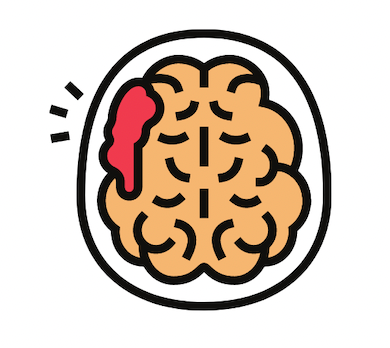What is the relationship between AF and stroke


A stroke occurs when the blood supply to a part of the brain. This mostly occurs because of a sudden blockage in a brain artery, which can sometimes be due to a blood clot.

So the link with atrial fibrillation (AF) is that it increases the risk of blood clot formation in the heart, which then travel up to the brain and cause a stroke.
This is one potential link between stroke and AF.

Some researchers think that it isn’t the AF itself that causes the blood clots and strokes, but that AF is just a feature of a much broader heart condition that makes those people vulnerable to having a stroke.
However, regardless of the mechanisms, we do know a lot about AF and stroke.,
We know that patients with AF are at risk of more severe strokes - one in four strokes are in patients with AF. You may think ‘thats only 25%’ but if you think that only 1-2% of the population have AF, you can see that the risk of stroke is much higher in AF patients.
What we know is that if at-risk people with AF are treated with blood thinners, this can bring down their risk of a stroke.

We know that other factors such as your age and whether you have diabetes, high blood pressure or heart disease can influence just how much this associated risk is. If you are young and have no other risk factors, it may be that the AF doesn’t actually increase your risk of stroke that much. You might think it’s worth taking the blood thinner anyway ‘to be on the safe side’ but it does come with an important side effect- it increases your risk of bleeding and so the overall benefit of blood thinners is only seen if you have a risk factor alongside the AF.

Many doctors use a ‘risk score calculator’ which adds up the risk factors for someone with AF and can try to predict that persons risk of a stroke with or without a blood thinner. This is one area of ‘personalised medicine’- an individual’s risk must be measured to ensure that person gets the right care for them. It is likely that as we understand the relationship between AF and strokes better, this ‘risk score calculation’ becomes more and more complex so that the decision-making becomes more and more personalised. Watch this space!

